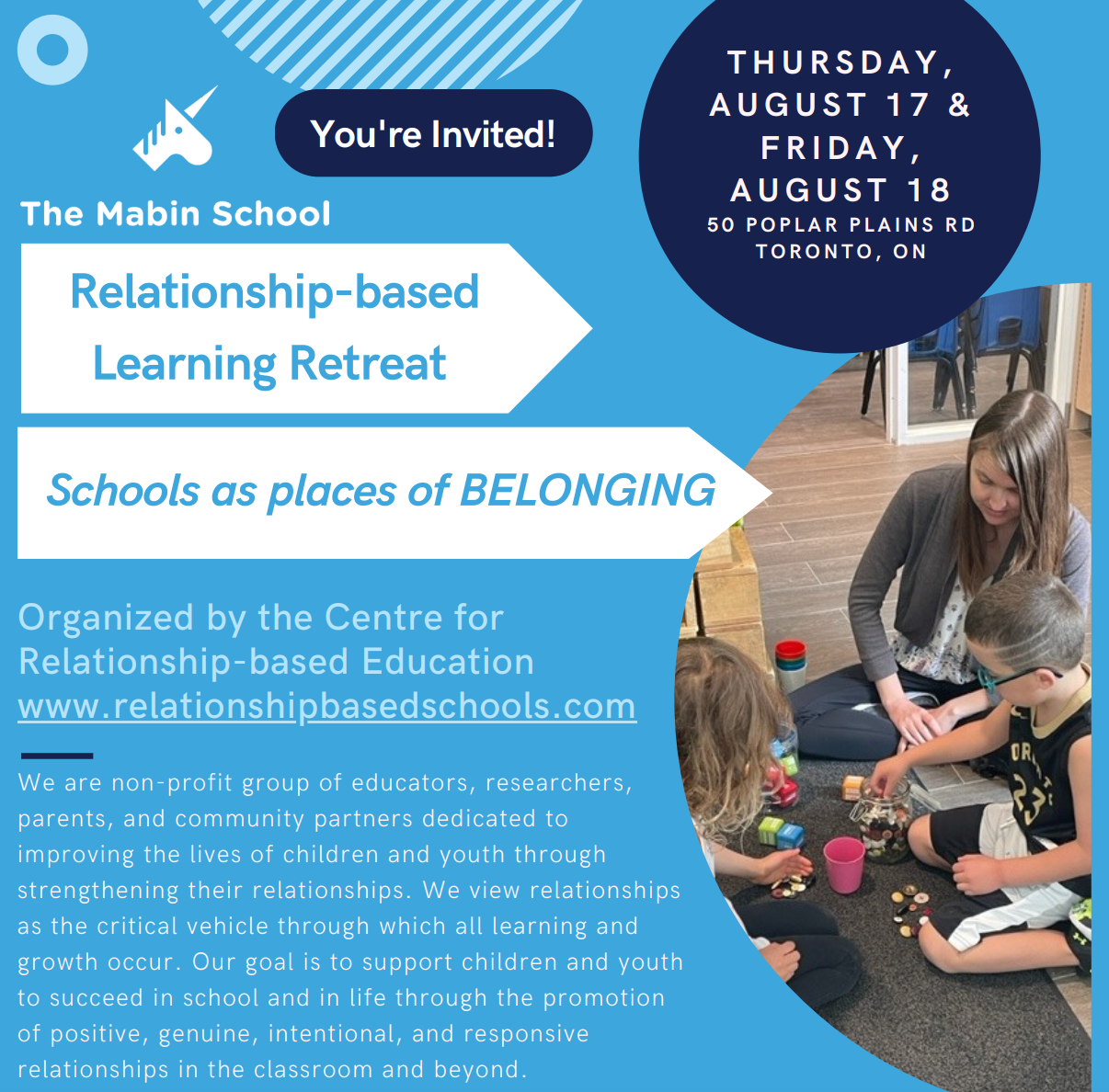We want to continue to build our Network and we need your help!
We started the Centre for Relationship-Based Education on March 5, 2019. In that short time, we have grown to nearly 450 members and counting. We are all about relationships. The more members, the more relationships, and the more we can make a real difference.
The Centre for Relationship-Based Education is your voice for what matters most in education. Let’s work together to make a difference!
What’s New
Relationships Make the Difference
THE CENTRE FOR RELATIONSHIP-BASED EDUCATION
We are non-profit group of educators, researchers, parents, and community partners dedicated to improving the lives of children and youth through strengthening their relationships. We view relationships as the critical vehicle through which all learning and growth occur. Our goal is to support children and youth to succeed in school and in life through the promotion of positive, genuine, intentional, and responsive relationships in the classroom and beyond.
YOU ARE THE STRATEGY
What is the common denominator underpinning both academic achievement and student well-being? Relationships. When students encounter caring and consistent relationships with adults, they are much more likely to succeed—not just academically, but in regard to their mental health and well-being too. Relationships make the difference and it all starts with you!
Research shows that stronger teacher-student relationships leads to:
Increased pursuit of social goals
Increased prosocial behaviour
Development of social/emotional skills
Increased self-control
Enhanced emotional well-being
Increased positive self-concept
Willingness to seek help
Greater internalization of adult values and goals
Improved sense of relatedness and belonging
Buffering of stress and anxiety
Greater overall protection against risk
Improved emotional regulation
Increased motivation
Increased academic engagement
Improved reading achievement
Improved math proficiency
Improved overall academic outcomes
Greater cooperation
Greater resiliency
Improved attention
Language skill development
Greater liking of school
Growth in self-directed behaviour
The prevention of school dropout
Greater self-efficacy








